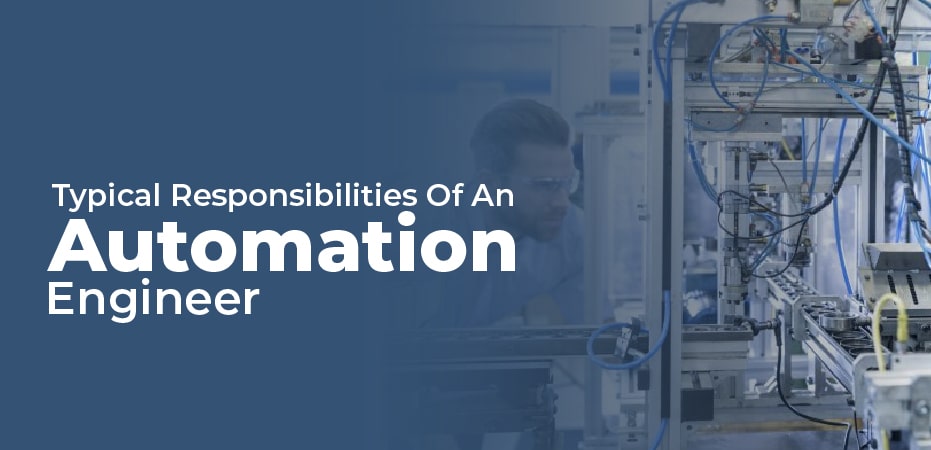
What Is The Role Of An Automation Engineer In The Industry?
Table of Contents
Studies reviewed by MIT indicate that predictions regarding how much automation will increase or decrease employments are vastly divergent and a reduction in employment may or may not occur.
Automated workflows are becoming more widespread across organizations, providing a synchronization platform that can be implemented for IT, development, and customer service initiatives. Automation engineers are needed in every industry to manage, facilitate, and oversee automation.
Engineers In The Automation Field
Although automation has been used in manufacturing for decades, it is still relatively new in business, healthcare, as well as finance.
This is one of the differences between manufacturing and factory automation and the automation of IT, as the latter is generally focused on the automation of service processes and quality assurance of automated processes.
As customers and businesses tend to be increasingly automated, the chance of errors, defects, and other problems with software and products is reduced considerably.
As well as this, companies are now using automation engineers, who help implement this technology, to use automated chatbots to address customer concerns or direct them towards the correct person. Furthermore, it could also be used for simplifying IT help desk ticketing, thereby improving IT service quality and speed, as well as decreasing defects, as well as speeding up the development of software and products.
Worker efficiency and reliability can be improved by automating manual processes that are redundant and inconsistent..

Typical Responsibilities Of An Automation Engineer
IT automation engineers are responsible for automating software processes. Working with other teams, automation engineers must gather requirements, automate processes and analyze problems to resolve them. You might be asked to automate business or service processes as well as hardware or software at times. Automation engineers are expected to do the following:
- Automate software processes where possible.
- Scripts for automated software testing should be initiated.
- Developing and implementing test plans for databases, systems, networks, applications, hardware, and software is a critical responsibility.
- It is crucial to find problems and correct them in the areas of development, business processes, and service.
- Ensure the automated processes are carried out with software and databases.
- In addition, identify ways to optimize workflow through automation.
- It would be beneficial to gather a range of requirements from customers, clients, or even end-users to develop the most appropriate automation solutions.
Salaries Of Automation Engineers
Most likely, as a QA engineer, you will work on IT solutions that automate processes. According to Glassdoor, QA automation engineers are likely to earn on average $100,580 per year based on the information they provided. The average salary for a senior automation engineer in quality assurance is $124,000 annually, according to reports.
Automated Systems Engineer Skills
The best automation engineers are technically skilled as well as possess soft skills. Having a good understanding of key technologies such as systems, networks, software, and hardware, as well as good communication skills are essential to communicating and collaborating with other business units, clients, and customers.
C#, SQL, Java, Python, and Java are some of the programming languages you’ll need. You will need to know different languages and tools based on your industry. Furthermore, you need to have experience with analytics, robotics, artificial intelligence, and machine learning as well as mobile, web, and desktop operating systems.
As a leader, you must help streamline business processes within your organization by overseeing initiatives across departments.
An automation engineer typically has the following skills:
- Robotics and automation
- Machine learning and artificial intelligence
- Experience with coding and programming
- Importing Automation in Project management
- Agile, DevOps, cloud computing
- Taking an analytical and problem-solving approach
- Automation In leadership and communication
- Experience in engineering or computer science
Tools For Automation
Automation engineering software is most often used for testing. By automating alerts, integrating QA services, and automating testing processes, businesses achieve improved efficiency. QA testing can also be automated, and it can help solve automation issues.
Among the most popular software for automated testing as determined by Capterra, there are:
- Rainforest
- PractiTest
- Cypress
- Testim
- pCloudy
- Usetrace
- Automated Testing for UiPath
- LambdaTest
Certification Programs For Automation
To validate your automation skills, certifications are emerging for the field of automation. There are a handful of certifications you can earn with an IT background that is automation-specific. While there may be industry-related certifications, here are a few you should consider:
- ISA Control Systems Engineer (CSE) Licensing
- IIST Certified Software Test Automation Architect (CSTAA)
- IIST Certified Software Test Automation Specialist (CSTAS)
- ASTQB Test Automation Engineer Certification (ITSQB)
- ISA Certified Control Systems Technician (CCST)
- ISA Certified Automation Professional (CAP)